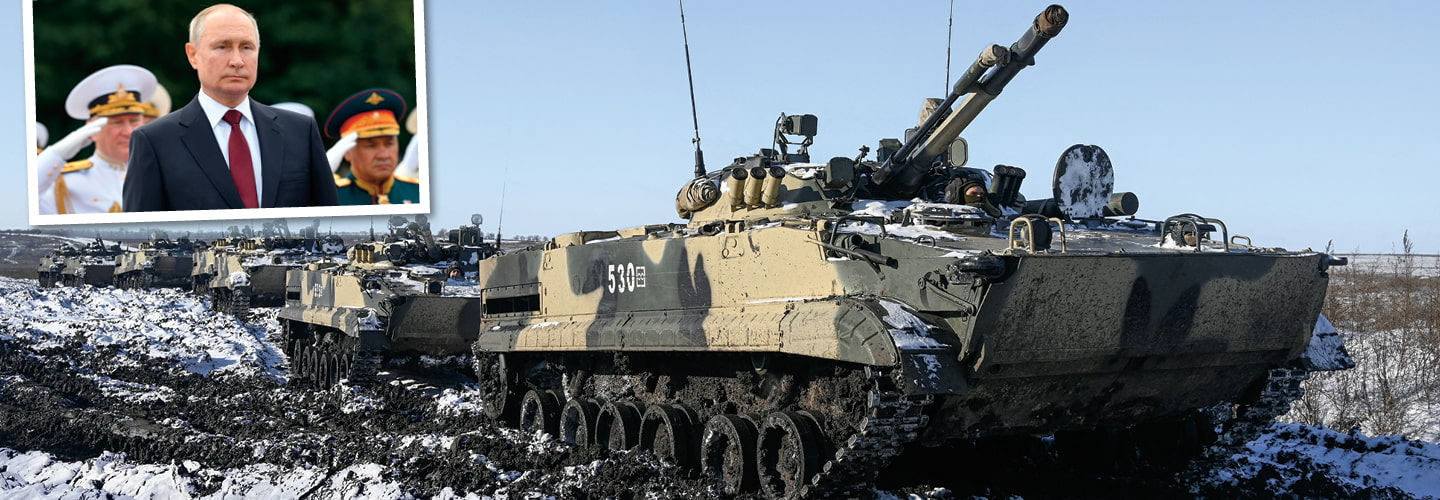The signs of impending war were everywhere.
By late January, 100,000 Russian troops were massed on Russia’s border with Ukraine, as tanks and military helicopters swarmed in behind them. With tensions mounting, diplomats raced to head off a possible invasion, and the United States—a committed ally of Ukraine—threatened a decisive response if Russia’s president, Vladimir Putin, attacked his neighbor.
“I made it very clear: If, in fact, he invades Ukraine, there will be severe consequences,” President Biden said, following a long-distance virtual summit meeting with Putin in December, “severe consequences—and economic consequences like none he’s ever seen or ever have been seen.”
The Ukraine crisis set up what may be the most heated confrontation between the U.S. and Russia since the demise of the Soviet Union and the end of the Cold War three decades ago, Russia experts say. The standoff is rooted in Putin’s longstanding anger over Russia’s diminished status since the days when the Soviet Union and the U.S. were the world’s two superpowers; now only the U.S. remains.
“Putin sees an opportunity to reverse everything that’s happened in Europe in the last 30 years, to push the West out of Eastern Europe, and they’re using Ukraine as a hostage in this,” says Fiona Hill, a Russia expert at the Brookings Institution, a Washington, D.C., think tank.
The signs of approaching war were everywhere.
By late January, 100,000 Russian troops lined Russia’s border with Ukraine. Tanks and military helicopters swarmed in behind them. With tensions growing, diplomats raced to stop a possible invasion. The United States, a committed ally of Ukraine, threatened to respond if Russia’s president, Vladimir Putin, attacked his neighbor.
“I made it very clear: If, in fact, he invades Ukraine, there will be severe consequences,” President Biden said, following a long-distance virtual summit meeting with Putin in December, “severe consequences—and economic consequences like none he’s ever seen or ever have been seen.”
The Ukraine crisis set up what may be the most heated showdown between the U.S. and Russia in decades, Russia experts say. They note that things haven’t been this tense since the fall of the Soviet Union and the end of the Cold War. The standoff is rooted in Putin’s longstanding anger over Russia’s decreased status. Years ago, the Soviet Union and the U.S. were the world’s two superpowers. Now only the U.S. remains.
“Putin sees an opportunity to reverse everything that’s happened in Europe in the last 30 years, to push the West out of Eastern Europe, and they’re using Ukraine as a hostage in this,” says Fiona Hill, a Russia expert at the Brookings Institution, a Washington, D.C., think tank.

